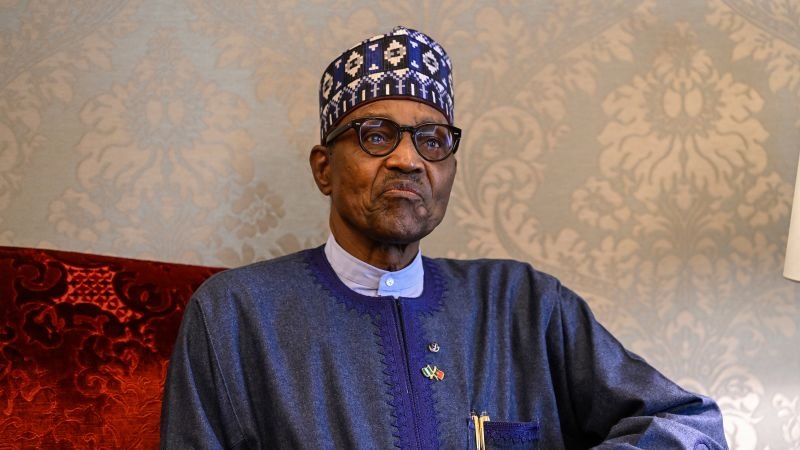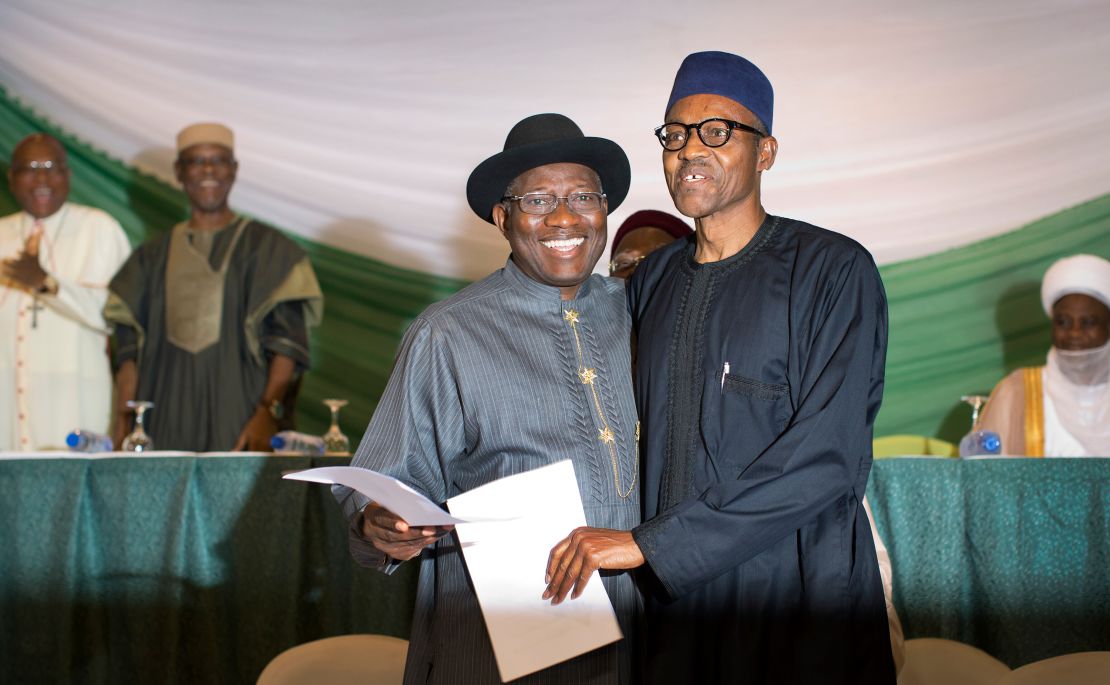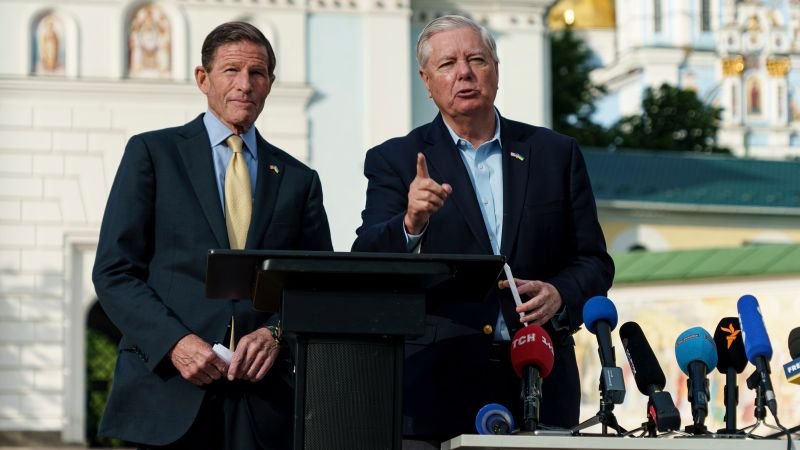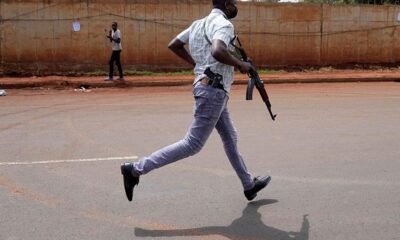CNN
—
Former Nigerian President Muhammadu Buhari, a former military general who campaigned on rooting out government corruption, has died at age 82, the presidential press office said in a statement on Sunday.
He died in London at about 4:30 p.m. after a “prolonged illness,” according to the statement.
Nigeria’s current president Bola Ahmed Tinubu offered his condolences to Buhari’s wife and ordered his vice president to travel to the UK to accompany Buhari’s body back to Nigeria.
Tinubu hailed Buhari’s legacy as “a patriot, a soldier, a statesman” with a “deep commitment to the unity and progress” of his country.
“He stood firm through the most turbulent times, leading with quiet strength, profound integrity, and an unshakable belief in Nigeria’s potential. He championed discipline in public service, confronted corruption head-on, and placed the country above personal interest at every turn,” Tinubu said.
Buhari was elected president in 2015 after running unsuccessfully three times. He was re-elected for another four-year term in 2019.
A former general who first came to power in a 1983 military coup only to be overthrown by another military coup two years later, Buhari will be remembered for his strong anti-corruption agenda in a country famously described as “fantastically corrupt” by former British prime minister David Cameron. Others laud his tough stance against the Boko Haram insurgency and security issues that plagued the northeast of the country for years.
A Fulani Muslim, he was born in Daura, Katsina state in Nigeria’s northern province in December 1942 and completed military training in Kaduna state, Great Britain, India and the United States.
He first came into political prominence in 1975 after a military coup that overthrew then-ruler Yakubu Gowon. Buhari was made military governor of Borno state – a state plagued by Boko Haram.
Buhari, who was married twice and has ten children, was part of Nigeria’s ruling establishment both as a military ruler and later a “reformed democrat” as he called himself during the 2015 election campaign, which he won by a landslide.
Nigerians lined the streets celebrating his victory; however, the honeymoon didn’t last long as many believed he squandered his goodwill by being too slow in his presidential actions.
He took six months to appoint ministers to his cabinet and then failed to act quickly to tackle the country’s economic crises, which was in part brought about by a weak currency and falling global oil prices.
For months, Buhari refused to devalue Nigeria’s falling currency, the naira, and weakened investor confidence. This further led to a gulf between the official and black market exchange rate.
According to economic analyst Bismarck Rewane, one of Buhari’s failings was his limited understanding of modern economics and markets policies, which plunged the country into recession. This lack of understanding was rooted in paranoia and suspicion after he was overthrown during his first military rule, according to Rewane.
He said: “In 1983, Buhari felt he was swindled when he was asked by the IMF to devalue the Naira and remove subsidy. Three weeks later there was a coup against him. Since then he has been suspicious of free market policies and he took a long time to do things. When he did do them, the impact was too little too late and not optimal.”
Rewane, who met President Buhari several times on the campaign trail and gave him some policy advice after his victory, says Buhari will be remembered as a “strong and principled leader.”
“He was a very unique governor,” Rewane told CNN. “Some people will say he was rigid, he didn’t shift when he believed in something. But I see that as a good thing. He had a strength of character is very rare in this part of this world. People here are too flexible and corrupted.”
Buhari’s first term was characterized by war on many fronts, including the Boko Haram insurgency, the secessionist pro-Biafra movement in the east of Nigeria and rampaging Fulani herdsmen across Nigeria.
Despite growing concerns around the country’s security situation, Buhari was reelected in 2019. During his second term, furious protests against police brutality erupted across the country, decrying reported incidents of kidnapping, harassment, and extortion by a controversial police unit.
Buhari vowed to do more to fight militant groups and fix the economy as the demonstrations turned deadly and continued to simmer for the remainder of his presidency.
In his final UN speech in 2022, Buhari criticized the “corrosive” effect” of fellow leaders who extend term limits to cling to power. The next year, he praised his successor and fellow party member Tinubu as “the best person for the job.”

























